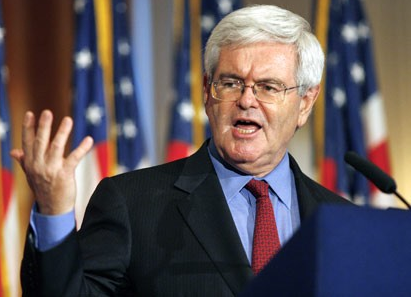Maureen Dowd Remains Cool, and Infuriating

There is almost always something sexy in her columns. The feminists, and post-feminists, forgive her for that, as every woman seems to read her. Today, the something sexy is San Francisco mayor Gavin Newsom. Dowd met with him, and he explained why he is stepping away from politics. He revealed his distaste for aspects of his party. He dodged criticizing the President by actively dodging criticizing the President. He allowed Dowd to reference a political issue (same-sex marriage), a political phenomenon (parties often eat their fine young), and a contemporary, cultural apolitical loadstone (the original Lifetime movie).
Dowd is sui generis. We love her wit. We love her for being a woman on the Times Op-Ed Page who does not write often about women’s issues. And perhaps last Sunday’s responses to Katie Roiphe, in another part of the Paper, are evidence that the more the post-feminist argument evolves, the more it stays the same.
Dowd has a greater game in mind. Rather than try and get inside women’s minds, Dowd prefers to regularly give us her view of what men in power think, and why they think it. While she takes on women occasionally (perhaps most memorably, Hillary, in the last election), when she sits down with men her column invariably becomes part psychologically profile, part news.
Dowd can say things like this:
Gavin Newsom still looks glossy, like someone who’d play J.F.K. in a Lifetime original movie.
But then she then backs it up with revelations like this:
“There were five of us,” he said, with a teasing nostalgia. “A guy named Obama. I’m like ‘Why is he in here? This is ridiculous. I mean, he’s a state senator. I’m kind of insulted.’ Life was really good, and then it came crashing down. ‘You’re not going to be speaking at the convention. We overbooked.’ And then it becomes the house of cards with the Democrats excusing themselves from visits to this city and being in the same room with me.
She doesn’t worry-bead the macro-analysis; she simply gives us character details and, in Newsom’s case, a revealing disclosure at a moment when this message—there are young, talented politicians who are open about being disillusioned with politics as it’s played—is relevant. It’s news.
* * *
It’s not uninteresting to re-read Roiphe’s 2005 review, in Slate, of Dowd’s book, Are Men Necessary? Roiphe wrote:
One of Dowd’s many admirers extravagantly compared her to Edith Wharton. But Wharton was among the first female writers to write about the single woman’s ambivalence toward marriage. What is maddening about Dowd’s book—and the excerpt in the Times Magazine—is that she does not develop her ideas, that she does not push beneath the surface. One wishes that, instead of devoting herself to zinginess, to ripostes and one-liners, she would use her threatening intelligence to unearth the deeper complexities of her subject. Is there something about the generation of women who came of age in the late 1960s—in male-dominated universities and workplaces—that finds its own power problematic? Why is it that so many women are taking refuge in outdated visions of femininity?
The critic has reason: she wishes Dowd could be, philosophically, more post-feminist—or, what an amateur understands as Third Wave. Said another way, she wishes Dowd could be more like her. Would it matter if she were? We will not stop reading, either way. The Newsom piece is evidence of a threatening intelligence, because the definition of a threatening intelligence is one with the power to disarm.





